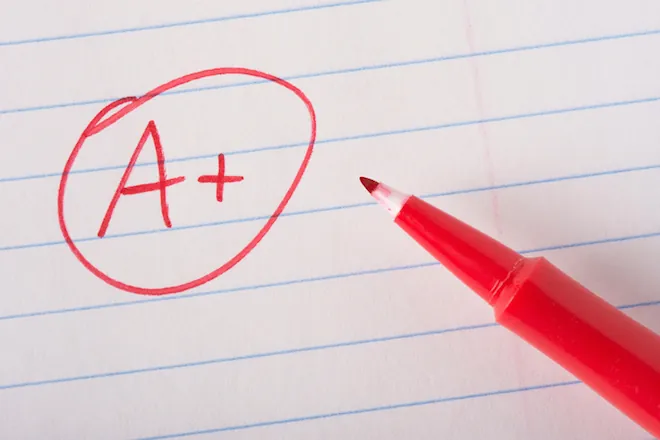
If you haven’t noticed, the information age is upon us. Advertising, marketing, and news media inundate all of us on a daily basis and B-school messaging is no different. One of the best ways to cut through the noise is to get info and opinions from fellow consumers. And recent alumni of elite business schools can provide some of the best candid and valuable insights in how a school is actually performing in providing a quality education and experience to its students.
So each year when we set out to rank the country’s best undergraduate business programs, we send a 43-question survey to the alums of each participating school. We send the survey to alums graduating to years prior to the time of the rankings. For this year, the survey was sent to the graduating Class of 2016 (any student graduating with a BBA degree between July 1, 2015 and June 30, 2016). After chatting with a few business school deans, two years after graduation was set because it’s far enough out for alumni to evaluate and reflect on their early careers but also not so far out that they no longer remember specifics of the business program in which they graduated. This year’s results are the aggregate of nearly 6,000 alumni that responded to the surveys between September and November of this year.
Of the 43 questions, 16 are one a one-to-ten scale where one is the most negative score and 10 is the best. We take that average across all 16 questions and use it as the heaviest weighted single data point in the entire rankings. This year was the most competitive in terms of how many schools participated, how many qualified by meeting the minimum alumni response rate, and the overall average scores stemming from the 16 questions. Last year, for example, the University of Virginia’s McIntire School of Commerce notched the highest average at 9.37. This year, five schools — including Virginia McIntire — eclipsed the 9.37 average.
The school topping this year’s list was the University of Notre Dame’s Mendoza College of Business, which scored a remarkable 9.53 average. Notre Dame was followed by The College of William & Mary, which scored a 9.49 average. Next up was Seton Hall University’s Stillman School at 9.45. Boston College’s Carroll School of Management and Virginia’s McIntire School followed, scoring 9.39 and 9.38, respectively.
ALUMNI LARGELY SATISFIED AT ALL SCHOOLS IN THE RANKINGS
Just like last year, 19 schools out of the 88 that qualified averaged at least 9.0. All but six schools scored at least 8.0 and no school scored an average lower than 7.23. The upshot: You can’t really go wrong at any of the schools included on the rankings. Instead, fit should be considered when evaluating being a potential student at these schools. Which is another reason to check out the questions below. Fact is, schools perform better than others in specific areas.
Take, for example, results to the prompt, “Do you believe your business degree was worth its time and tuition?” Brigham Young University’s Marriott School takes the top spot with an average of 9.78. Besides BYU, only one other private school — Seton Hall’s Stillman School — makes it into the top 15. Meaning, it doesn’t necessarily take a pricy private school to get a solid business education (although, schools like the University of California-Berkeley and University of Michigan-Ann Arbor can have private school-like prices, especially for out-of-state students).
If going to a school with a strong and engaged alumni presence is a priority, look towards Notre Dame’s Mendoza College. In the two question prompts evaluating alumni (How would you judge the business program’s alumni network and connections that can help you throughout your career and How accessible and willing were the school’s alumni in helping you connect with potential employers?), Notre Dame scores well above the rest at 9.85 and 9.83, respectively. The next closest school is Boston College’s Carroll School at 9.48 and 9.47.
If professor accessibility and relationships are a priority, The College of William & Mary should be considered. In both questions asking about the availability of professors outside of the classroom, William & Mary topped the list with 9.88 and 9.71.
(Click the questions below for entire lists of scores, grades, and analysis for each question.)
Would you recommend the business program to a close friend or colleague?
Evaluate how well the business program prepared you for the world of work.
Do you believe your business degree was worth its cost in tuition?
How would you rate the quality of teaching in business courses?
Were business school faculty available for mentoring and non-academic topics outside of class?
How would you appraise the effectiveness of the business program’s academic advising?
How would you appraise the effectiveness of the business program’s career advising?
How accessible and willing were the school’s alumni in helping you connect with potential employers?
Was your business school experience life-changing?
Do you believe your business degree will assist you in climbing to a new socioeconomic status?
How instrumental do you believe your business degree will be in reaching your dream career?











